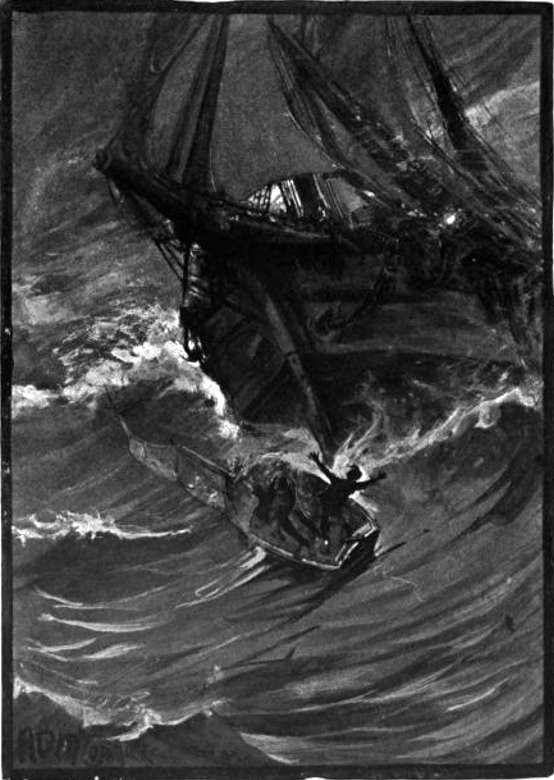
Edgar Allan Poe is an amazing story teller, no doubt about it. The thing is, his language is so rich and full, it can be a intimidating to jump into his longer works as a novice reader. He is defiantly a writer in love with the language, with words.
I finished reading, "The Narrative of Arthur Gordon Pym of Nantucket".

His only published novel, it was written in 1838.
Aurthur Gordon Pym is seeking adventure, so he stows away on board a whaling ship (in a severely claustrophobic manner). The story immediately moves in an interesting, strange directions. What follows is an adventure whose scope is wide, as Pym somehow ends up in South America, and finally, the South Pole.
A striking element is the amount of graphic violence in context with the time the novel was published. There are several, quiet brutal executions. There are scenes of cannibalism.
There is drunken sailing (...in fact, now that I think about it, drunkenness comes up again and again, from tipsy at the dinner party, to absolute comatose at the wheel.)
One delightfully creepy moment: Pym is floating on the wreckage of the whaling ship after a storm, starving to death with what is left of the crew. Then, far off, they see a ship coming towards them. The men on the ship are smiling and waving at the survivors. I'll let Poe tell you the rest...:
"The brig came on slowly, and now more steadily than before, and--I cannot speak calmly of this event--our hearts leaped up wildly within us, and we poured out our whole souls in shouts and thanksgiving to God for the complete, unexpected, and glorious deliverance that was so palpably at hand. Of a sudden, and all at once, there came wafted over the ocean from the strange vessel (which was now close upon us) a smell, a stench, such as the whole world has no name for--no conception of--hellish--utterly suffocating--insufferable, inconceivable. I gasped for breath, and turning to my companions, perceived that they were paler than marble...Shall I ever forget the triple horror of that spectacle? Twenty-five or thirty human bodies, among whom were several females, lay scattered about between the counter and the galley in the last and most loathsome state of putrefaction!..."
"As our first loud yell of terror broke forth, it was replied to by something, from near the bowsprit of the stranger [the smiling man], so closely resembling a scream of a human voice that the nicest ear might have been startled and deceived. At this instant another sudden yaw brought the region of the forecastle for a moment into view, and we beheld at once the origin of the sound. We saw the tall stout figure still leaning on the bulwark, and still nodding his head to and fro, but his face was now turned from us so that we could no behold it. His arms were extended over the rail, and the palms of his hands fell outward...on his back, from which a portion of the shirt had been torn, leaving it bare, there sat a huge sea-gull, busily gorging itself with the horrible flesh, its bill and talons deep buried, and its white plumage spattered all over with blood..."
"The body...resting as it did upon the rope, had been easily swayed to and for by the exertions of the carnivorous bird, and it was this motion which had at first impressed us with the belief of its being alive. As the gull relieved it of its weight, it swung round and fell partially over, so that the face was fully discovered. Never, surely, was any object so terribly full of awe! The eyes were gone, and the whole flesh around the mouth, leaving the teeth utterly naked. This, then, was the smile which had cheered us on to hope!..."

The novel never quiet reaches the intensity of the floating wreckage scenes, but there is much action throughout. As the narrative develops, the plot moves away from realism, and into the realms of the fantastic, especially in the last portion of the novel. There are some stunning scenes: great, floating icebergs that are dumping waterfalls from their melting walls of ice; the wafting fog of the steaming South Pole waters; a man slipping overboard off a ship and falling through ice, never seen again.
Although, the novel does have some drawbacks. Chiefly, there is a disjointed feeling throughout, a lack of unity in the piece. It is clear that Poe is a master of the short form, and he applies those strengths--his precise, vivid imagination, his brevity, his humor--but the result, at times, is the feeling that Pym is a collection of long, related episodes.
While not an easy read, Arthur Gordon Pym was well worth the time. Hidden throughout this short novel is a treasure trove of "Poe moments" that, more than once, shocked me with the same gleeful, cringing horror I felt when I first read, "The Cask of Amontillado," and "The Tell-Tale Heart". And, for me, those moments are the most important things of all.
Recommended!

No comments:
Post a Comment